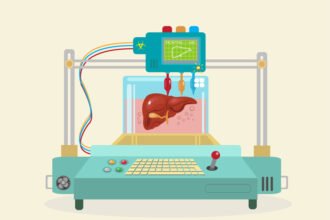There are many great careers in the healthcare sector. One career many people haven’t considered is medical interpreting.
Medical Interpreting is an important part of medical service delivery and today hospitals and adult care facilities that cater to patients from different countries deploy stand by interpreters to aid interaction between doctors and their patients. Medical interpreting can only be done effectively by professional medical interpreters. They help patients who have limited English speaking abilities and they are easier to relate with especially when in tense situations when the patient is in distress.
In the medical industry, the quality of communication matters a lot and may be the difference between life and death. For doctors and caregivers to provide the quality care they need to understand the current state of their patients. Therefore, they are crucial for helping improve the doctor-patient relationship. This is what makes certified interpreters the best for medical interpreting than an untrained person.
Understanding medical terminology is key
Certified interpreters are familiar with medical terms and they also understand the importance of doctor-patient privacy. This is why all interactions between both parties are kept under the oath of secrecy by the interpreter even though he or she is a third party in the communication pipeline.
Furthermore, their human relations skills come into play during interactions. The doctor may be a trained professional with all the knowledge about drugs and medical procedures, but they may lack understanding in communicating in a different language. Even if they have a limited understanding of the language they may not be able to communicate certain concepts in a language that the patient can understand.
This situation may cause the patient distress or even worse. But with the help of a trained third party, medical interpreting is made easy. They can convey the information in a language that the patient can understand.
The risk of lawsuits
Healthcare professionals and establishments have to consider the possibility of lawsuits when dispensing healthcare services to patients in their facilities. Communicating the wrong message may lead to loss of life or injuries that will attract sanctions from the authorities or a lawsuit brought by the patient. All this can be avoided if medical interpreting is done by a certified interpreter.
Reassure the patient
A medical facility or hospital can be a terrifying place for a patient and made even more terrifying if they can’t understand a single word that is said. Language barriers may lead to confusion and distrust which may cause the patient to withhold certain information about their condition.
But if an interpreter is involved in the process, they can speak a language the patient understands which will only serve to break down barriers and evoke trust.
Benefits of using a trained interpreter
If your hospital, clinic, or facility caters to the needs of foreign patients you definitely need an interpreter on duty for every shift. As the global population becomes more dispersed, many more patients will be admitted into your facility who can’t speak the official language. Without an interpreter, the staff will likely run into communication problems.
Here are some benefits of using trained interpreters for medical interpreting.
Accurate medical report/history
A patient’s medical report or history is critical; this is why doctors always rely on one when examining their patients. They like to know if the patient has a family history of certain conditions or if they react to any particular type of drug, etc. Patients who cannot speak English will not be able to provide this information. Those with a limited understanding of the language may not be able to translate certain medical terminologies;
However, with a medical interpreter, this information can be accurately relayed to the doctor. With accurate information, the doctor or caregiver will be able to provide premium medical care.
Less stress
When there are active medical interpreters on-site, patients and their families will be relaxed since they will have no trouble communicating with doctors, nurses and other caregivers. In the absence of a certified interpreter on-site, patients and their family members may have to recruit a multilingual speaker off-site who may not be a trained personnel. Due to their lack of understanding of specific medical terminologies, errors and complications may occur.
Let us also add that this will cost more money to hire an outsider. Furthermore, divulging sensitive information about one’s health to a stranger who is not a doctor can be quite distressing. But with an in-house interpreter, these fears are allayed.
Improved efficiency
Medical interpreting and translation also aid efficiency in clinics and hospitals. They ensure that communication runs smoothly; also, patients will know the date and time for their next appointment. Besides, if healthcare providers know that they have interpreters onsite to assist them they will be less stressed so working to the best of their ability will not be a problem.







